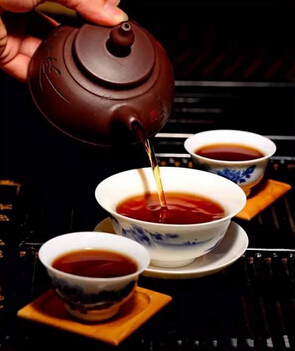
As is well known, China has had the custom of drinking tea since ancient times, and tea leaves offer many benefits. Tea contains over 600 chemical components, which not only provide health and wellness benefits, beauty enhancement, and weight loss but also help prevent certain diseases and alleviate physical discomfort. However, many people have misconceptions about tea, which can pose health risks, especially for the elderly. Drinking tea must adhere to the four principles of "early, little, light, and warm" to ensure it benefits the body without causing harm.
Early: Drinking tea in the morning is best.
After a night of metabolism, the body loses a significant amount of water, and blood concentration increases. Drinking a cup of light tea not only replenishes fluids but also dilutes the blood and protects the stomach lining. For the elderly, having a cup of light tea after waking up is particularly beneficial. Since the caffeine in tea has a stimulating effect that lasts for some time, drinking tea in the afternoon or evening may lead to insomnia, especially with freshly picked green tea, which has a strong stimulating effect.
Little: Drinking tea in moderation is best.
A large volume of liquid entering the bloodstream increases the heart's workload. Additionally, the caffeine and theophylline in tea are stimulants that can raise heart rate and blood pressure. Excessive tea consumption may cause symptoms like chest tightness and palpitations, potentially leading to heart failure. Moreover, drinking too much tea dilutes stomach acid, reducing its concentration and causing indigestion, bloating, and abdominal pain. Elderly individuals with duodenal ulcers should especially limit their tea intake.
Light: Drinking light tea is best.
Tea contains tannic acid, which reacts with iron in food to form insoluble compounds. Drinking strong tea in large quantities can hinder iron absorption, leading to iron-deficiency anemia in the elderly. Additionally, tannic acid binds with proteins in food to form tannin-protein complexes, which are hard to digest. This can worsen constipation in elderly individuals and negatively impact their health.
Warm: Drinking warm tea is best.
Studies have shown that warm tea helps reduce internal "heat" due to its cooling properties, which are then excreted through urine. Avoid drinking cold or overly hot tea, as cold tea can harm the spleen and stomach and promote phlegm accumulation, while scalding tea can irritate the throat, esophagus, and stomach, potentially causing mucosal damage.
Reminder: Tea lovers should follow the four principles of "early, little, light, and warm" to enjoy tea safely and healthily.